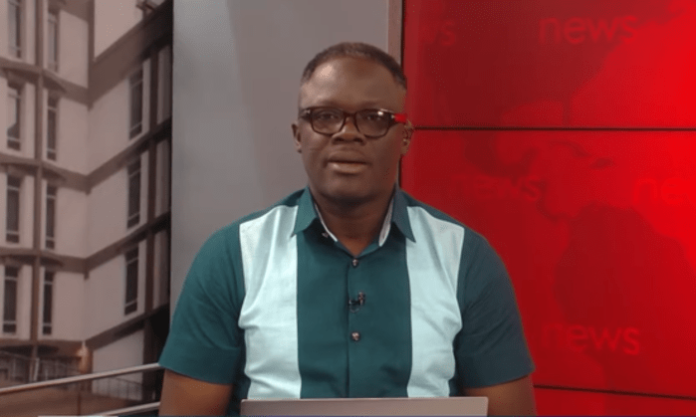Private legal practitioner, Samson Lardy Anyenini has said the admission of the tape recording involving the Attorney-General and businessman Richard Jakpa by Justice Afia Serwah Asare-Botwe into evidence in the ongoing ambulance purchase trial means she finds it relevant.
According to him, the Ghana Evidence Act 1975 (NRCD 323) states that all relevant evidence is admissible except as otherwise provided by any law or enactment.
Speaking to the media after Thursday’s proceedings, Deputy Attorney General Alfred Tuah-Yeboah said the office is not bothered by the judge’s decision since the content of the tape is already known publicly.
But speaking on Top Story on Thursday, Mr Anyenini said that the most important consideration for a court to admit any evidence in a trial is its relevance.
He said, “The law says relevant evidence is evident including relevant evidence to the credibility of a witness or hearsay declarance which makes the existence of any facts that is of consequence to the determination of the action more or less probable than it would have been – it would be without that evidence.”
He explained that the effect of the relevancy of the evidence is that its presence or existence would make something more or less probable than without it.
“So the admission is that the judge finds the evidence to be relevant without which the evidence would not be admitted,” he said.
Background
On Thursday, June 13, Justice Afia Serwah Asare-Botwe, the trial judge in the ongoing ambulance purchase trial, admitted an audio recording involving the Attorney-General and the third accused, Richard Jakpa, into evidence.
She stated that the reasons for admitting the recording during the mistrial application on June 6, 2024, still apply. She noted that the pen drive containing the recording has been admitted in the interest of fairness since any electronic evidence by the prosecution would have been allowed.
The controversy began when lawyers representing Minority Leader Dr Cassiel Ato Forson attempted to introduce the audio recording into evidence, prompting an objection from the Attorney General, who questioned the foundation and relevance of the recording.
The audio recording, previously admitted and pivotal in the trial judge’s mistrial decision, is now being tendered again by defense lawyers, who argue that it forms a crucial basis for the charges of causing financial loss to the state made by the Attorney General.
Lead counsel for Dr Forson, Dr. Aziz Bamba, emphasized that the 16-minute recording pertains to the agreement between the Ghanaian government and a subsequent Letter of Credit.
Dr Bamba argued that the Attorney General’s conduct in the recording amounts to oppression of the accused, while also undermining the integrity of the trial process.
Dr Bamba contended that the audio recording is relevant as it suggests the case was not pursued in good faith, pointing to procedural irregularities in the Attorney General’s handling of the matter.
In response, the Attorney General argued against the recording’s admission, asserting that its relevance was not sufficiently supported.
The AG referenced the trial judge’s previous dismissal of the mistrial application, which relied on the recording, as evidence of its limited relevance to the case.
The AG further questioned whether the recording addresses the essential elements of the alleged financial loss to the state, arguing that it does not substantiate the charges against the accused.
The prosecution echoed these sentiments, additionally accusing Richard Jakpa of violating the Attorney General’s right to privacy by recording their conversation.
However, in her ruling today, Thursday, Justice Asare-Botwe disagreed with the Attorney General and admitted the recording into evidence.

